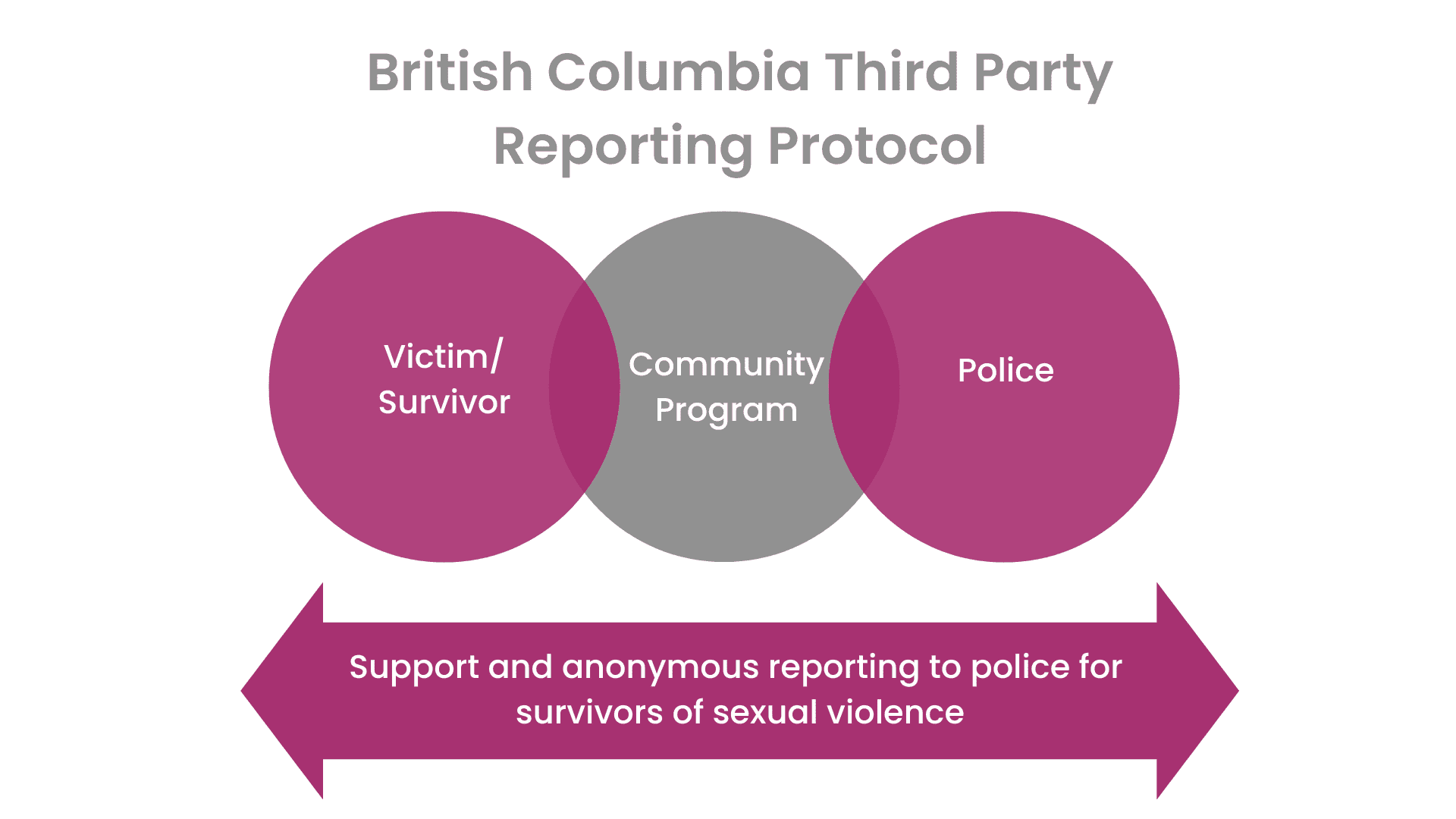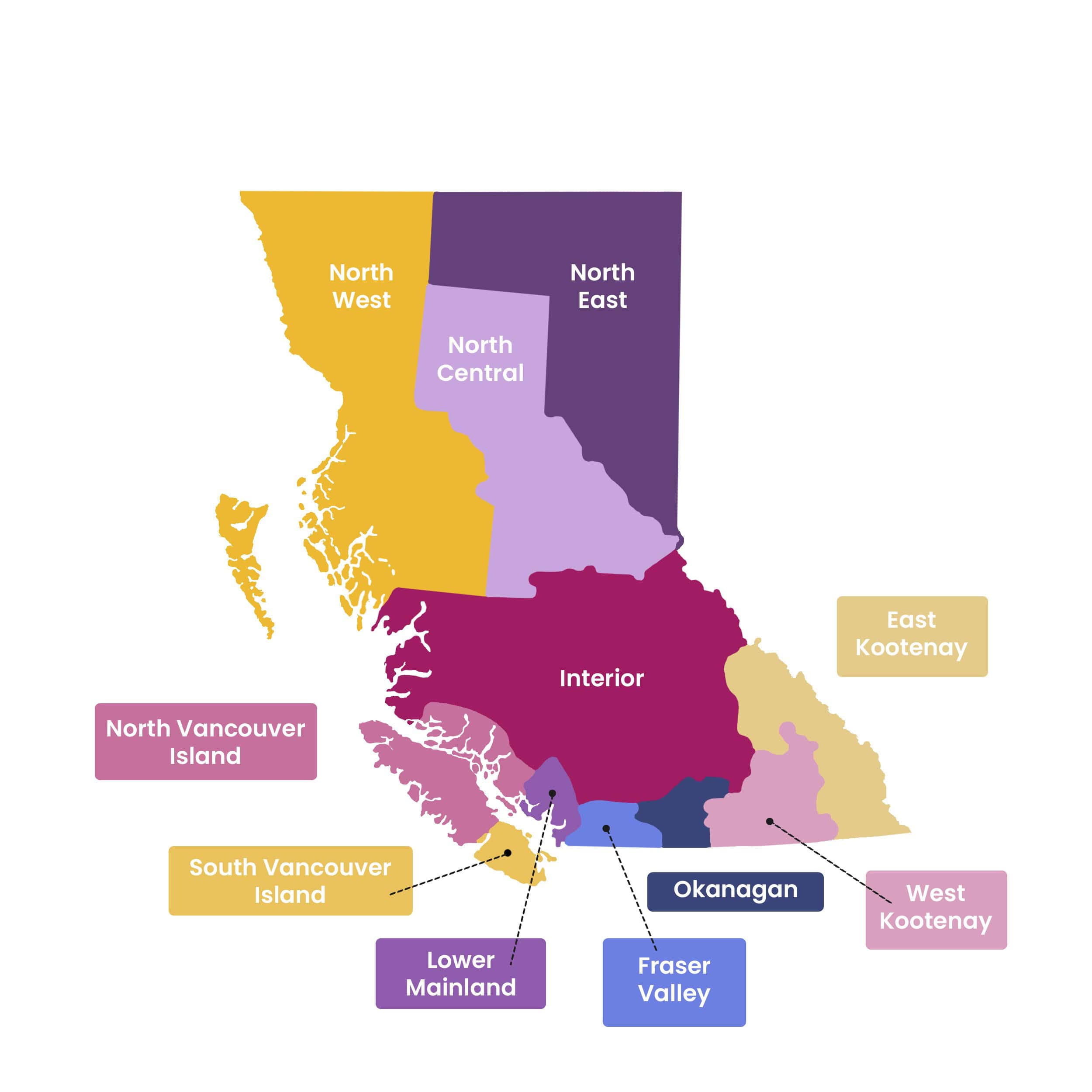Community Coordination
Sexual Violence
Sexual Assault Coordination
Never doubt that a small group of thoughtful committed people can change the world. Indeed, it is the only thing that ever has.
Margaret Mead

Sexual assault coordination initiatives, such as Sexual Assault Response Teams (SARTs) and/or Sexual Assault Coordination Initiatives (SAC), are designed to support a positive response for survivors of sexual violence, as well as work toward better coordination within systems and community. Sexual assault coordination initiatives bring together responders to support and enhance survivor-centered, trauma-informed services such as medical care, emotional support, counselling, legal information, and other community supports for survivors of sexual violence in their community.
Members of sexual assault coordination initiatives may include anti-violence organizations (such as community-based victim service workers, STV counselling and outreach workers and sexual assault response workers), Indigenous organizations, police, police-based victim services, Ministry of Children and Family Development, Crown Counsel, community corrections, health/mental health services, and school representatives from high schools, colleges and universities.
On a systems change level, sexual assault coordination initiatives will often identify strengths and challenges that their community faces. As an example, many communities have identified transportation as a significant barrier for survivors to access support and service so a community may respond by developing a plan to increase access for survivors to reliable transportation. Working together members will create change at the community level and often advocate for change to structures systems, procedures and practices to ensure a consistent and sensitive response. Many committees also focus on sexual assault prevention and awareness work such as developing a community campaign for Sexual Assault Awareness Month (SAAM).
Third party reporting of sexual assault: the British Columbia protocol
In British Columbia, Third Party Reporting (TPR) of sexual assault is a process which allows adult survivors (19 and over) to access support and to report details of a sexual assault to police anonymously, through a community-based agency.
TPR provides a survivor time to decide if and when they would like to report what happened to them to the police through a Third Party Report. One of the most important aspects of TPR is that TPR connects survivors to support and resources. TPR also provides police with information about people who are committing acts of sexual violence in their communities. This information can be used to identify people who are committing acts of sexual violence across BC as well.
The provincial Third Party Reporting protocol was developed by CCSS and other stakeholders from local, promising, collaborative practices. Some of these practices began in the 1980s when several local anti-violence services started collaborating with police partners to give survivors a process to access support and to report details of a sexual assault to police anonymously.
CCSS continues to provide ongoing training, resources and other supports to communities to develop local TPR interagency protocols and to support, implement, and maintain the Provincial TPR protocol. The Provincial TPR Protocol has the support of RCMP E Division (RCMP Headquarters in BC), the BC Association of the Chiefs of Police and the BC Association of Municipal Chiefs of Police.

Find resources on Sexual Assault Coordination in our Resource Centre.
Have a question? We may have answered it on the Common Questions page.

